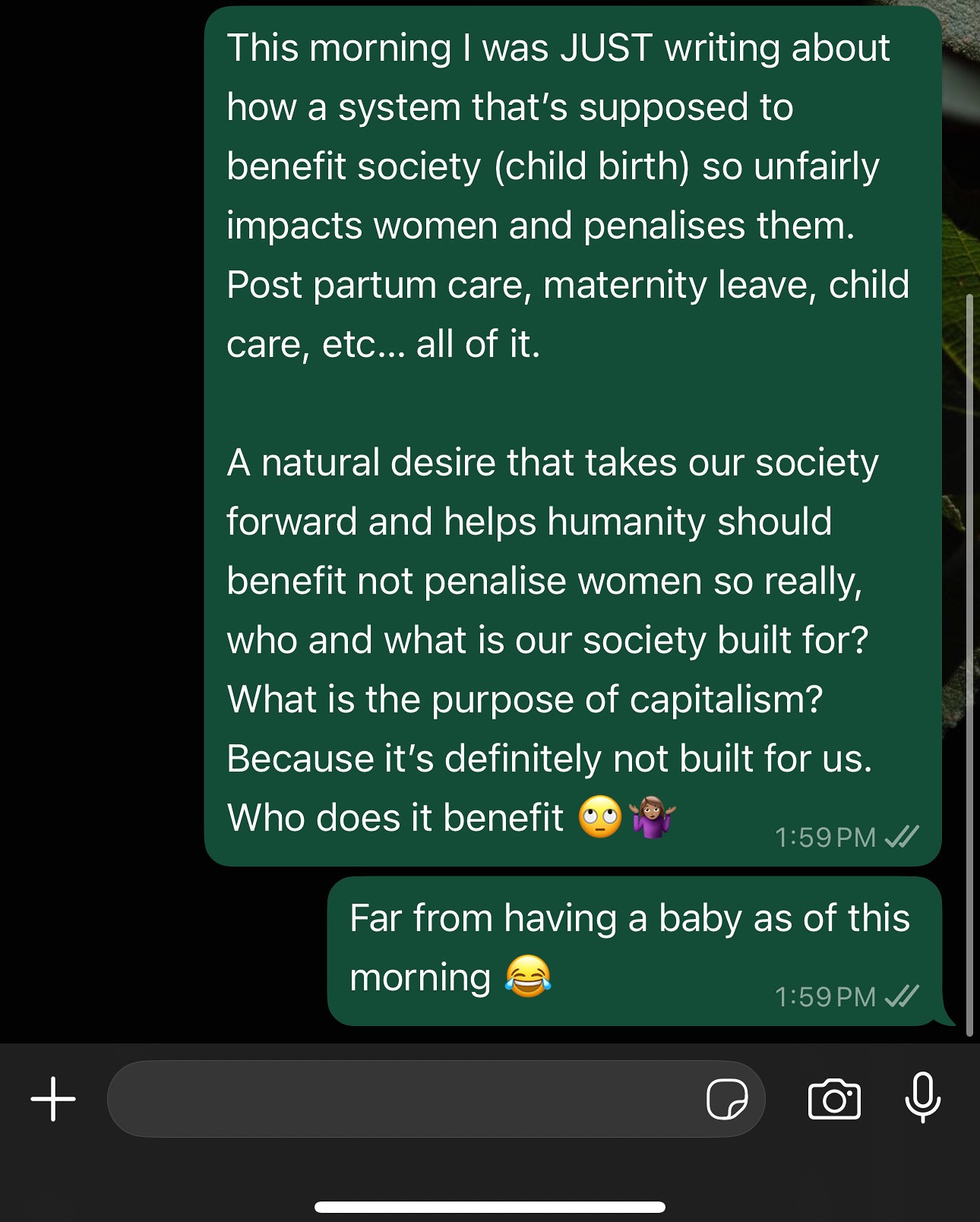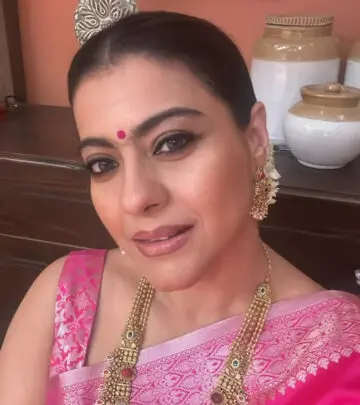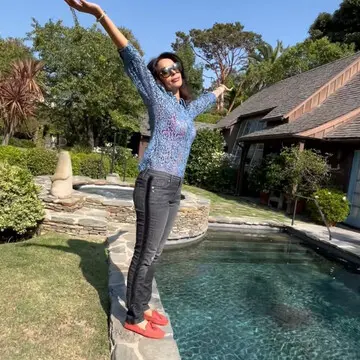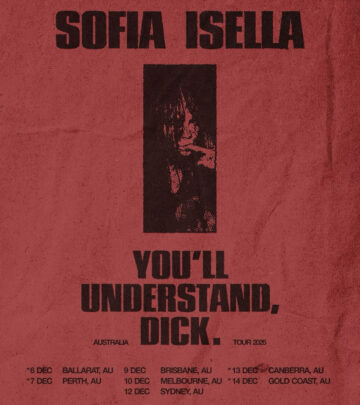Childbirth Sparks Deep Reflection
Saloni Chopra ponders a dream as she examines motherhood stress and women's rights. Boldly.

Image: Instagram
Saloni Chopra, renowned for her candid insights into women’s issues and cultural taboos, recently shared an Instagram post that has sparked conversation among her followers. In a message that blends humor, introspection, and social commentary, Saloni revealed that a friend had dreamt she had a baby—a whimsical notion that quickly evolved into a serious reflection on the realities of childbirth.
“lol a friend recently dreamt that I had a baby. On the same morning I woke up and found myself thinking about how childbirth disproportionately impacts women and mothers – the very people that bring life into this world. It’s crazy, no?” Saloni wrote. This intriguing juxtaposition of a light-hearted dream with a weighty societal issue sets the tone for a deeper conversation about the mental load and challenges inherent in motherhood.
Exploring Childbirth Impacts
In her post, Saloni draws attention to the fact that while childbirth is a natural process, its physical, emotional, and societal implications are far from equally shared. Childbirth, and the responsibilities that follow, often place an undue burden on women—a burden that extends beyond the act itself to encompass the long-term implications on personal freedom, career trajectories, and mental health. By highlighting her sudden, reflective moment, Saloni invites her audience to recognize the pervasive inequities that exist in the realm of reproductive health and societal expectations.
Her words resonate deeply in an era where debates about women’s rights and support systems for mothers are at the forefront. The hashtags #childbirth, #betterchildcaresupport, #womenempowerwomen, and #womensrights further underline the importance of these issues, urging both individuals and policy makers to rethink and improve support structures for women and mothers.
A Call For Equitable Change
Saloni’s narrative is not merely an isolated musing; it builds on her longstanding commitment to addressing gender disparities. Over the years, she has been vocal about the pressures faced by women, whether in relationships, careers, or everyday life. In previous posts, Saloni recounted experiences that ranged from personal encounters in dating culture to broader social commentaries on the expectations placed on women. For instance, in one earlier post, she humorously described a turbulent ‘situationship’ that subtly critiqued the societal narratives imposed on young women. This thread of introspection and defiance against limiting labels is a recurring theme in her work.
By sharing her recent dream and its aftermath, Saloni underlines the concept that even our most fleeting, subconscious experiences can trigger powerful realizations about the state of women’s lives. Her message is clear: the act of giving birth and the subsequent responsibilities should not be a solitary battle for women. Instead, there must be a concerted effort to ease the mental load and create an environment where support is not an option but an expectation.
Reflecting On Societal Norms
Saloni’s post also prompts us to consider the broader societal implications. The stark reality, as she implies, is that childbirth—the very event that symbolizes the creation of life—is accompanied by systemic challenges that persist long after the moment of birth. With mounting discussions around mental health, gender roles, and the need for comprehensive childcare support, her reflections come at a time when women around the world are increasingly demanding change.
Her thoughtful commentary reminds us that every decision to bring new life into the world is intertwined with personal sacrifice and societal neglect. The conversation is not just about individual choice but about how society values or devalues the individuals who assume the monumental role of caregiving. As Saloni points out, the mental and emotional toll of childbirth and the demands of ongoing childcare responsibilities are issues that require policy change and societal empathy.
Empowerment Through Awareness
Saloni Chopra’s ever-evolving dialogue on these topics has served as both a personal catharsis and a public call to action. Her reflections compel us to re-examine our assumptions about motherhood and to challenge a system that often treats the burden of childcare as an inevitable cost of being a woman. The conversation she initiates is nuanced—it blends personal anecdote with sharp social critique, urging everyone to consider how we might build a society that truly supports women.
Furthermore, this post resonates with her previous narratives, where she has explored themes of self-worth, agency, and the courage to reject societal expectations. By tackling the difficult intersection of dreams and harsh realities, Saloni not only contributes to an ongoing dialogue regarding women’s rights but also provides a platform for her followers to share their own experiences.
Her candid exposition on the subject is a reminder that our inner lives—those flashes of insight that often come in moments of vulnerability—can illuminate larger patterns of inequality. This approach to storytelling, honest and unpretentious, is what has established Saloni as a trusted voice in both celebrity culture and feminist discourse.
In weaving together humor and hard truths, Saloni Chopra leaves us with much to ponder: the need for better child care support systems, the acknowledgement of the mental load borne by mothers, and the power of an honest conversation about womanhood. Her post is a clarion call for a future where the disproportionate impacts of childbirth are met with equitable solutions and robust support.
This reflection, born out of a simple dream, has the potential to spark wider debates and, eventually, tangible change. It is a testament to the power of social media as a platform for introspection and activism, clearly marking another milestone in Saloni Chopra’s journey as both a celebrity and an advocate for women’s empowerment.
Read full bio of Glendon Moss




















